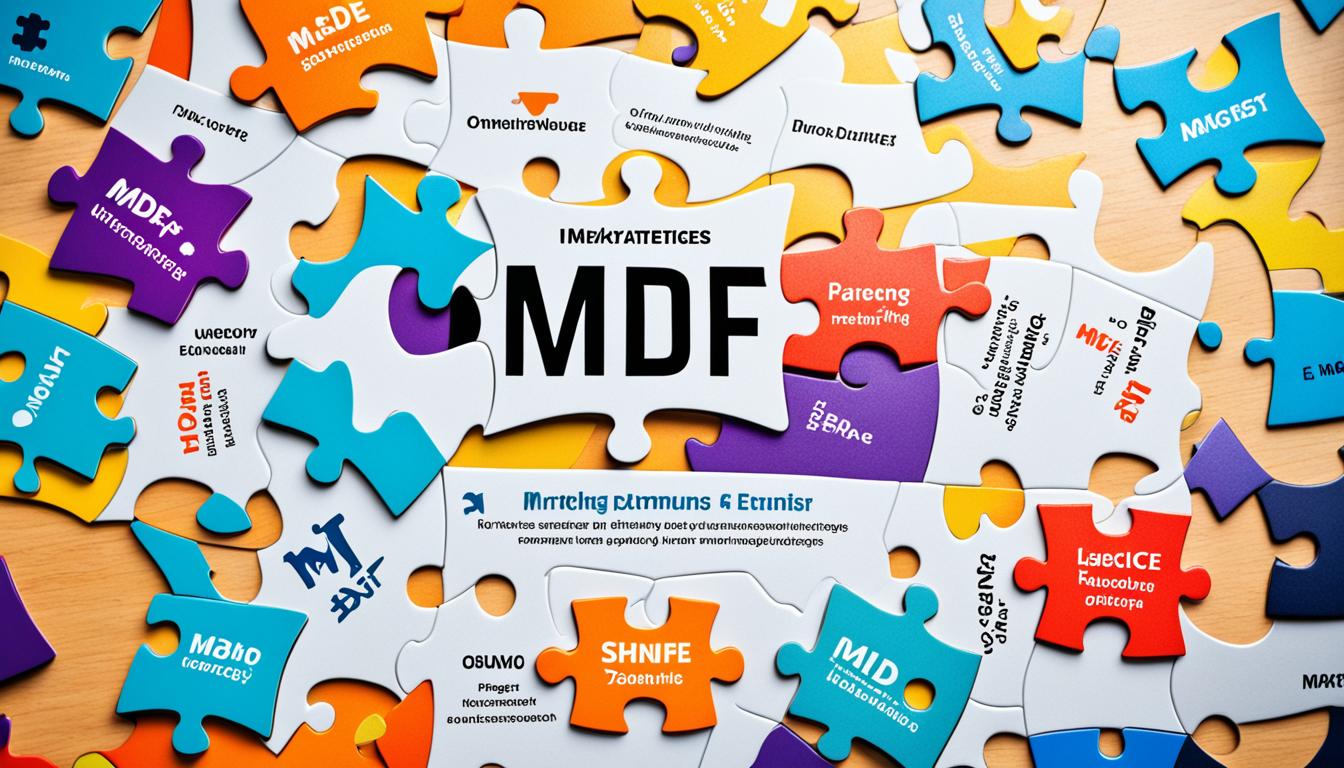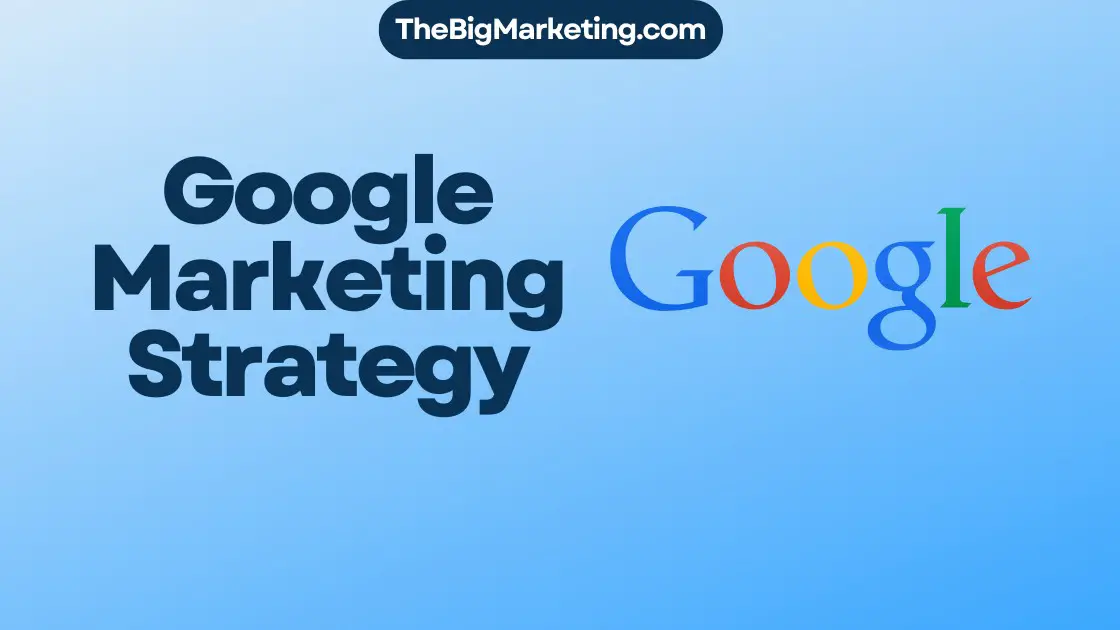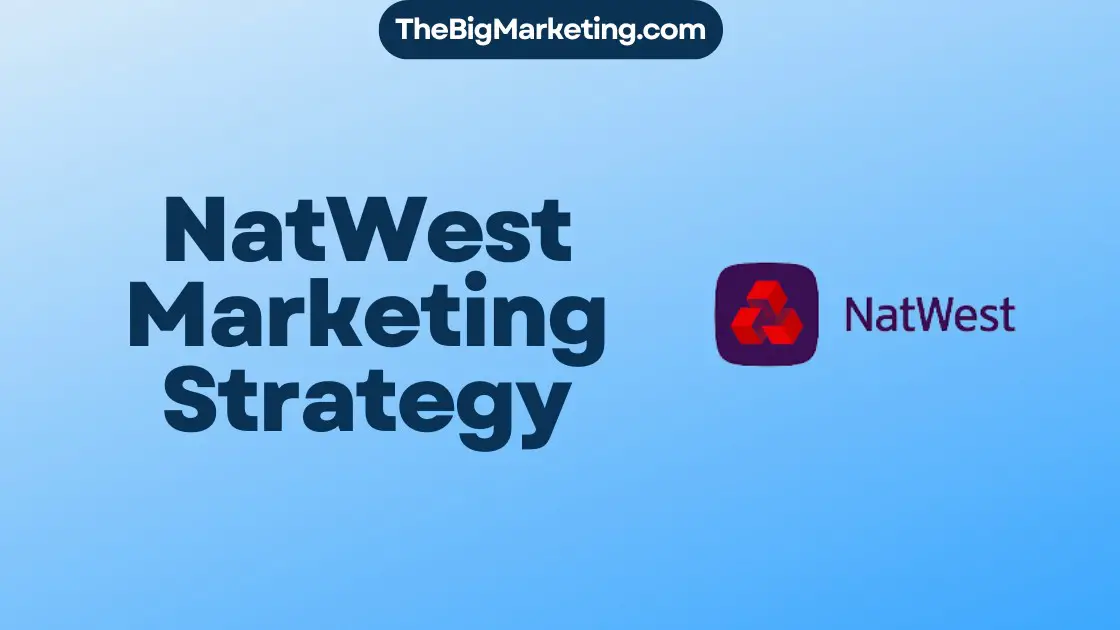Content marketing is a proven and effective way to reach and engage with your audience online. It generates leads three times as many as traditional marketing, and the content marketing industry is projected to reach 107 billion U.S. dollars by 2026. In 2024, having a strong and well-executed content marketing strategy will be crucial for businesses aiming to stand out in the digital landscape.
Understanding the basics of content marketing is the foundation for building a successful strategy. Defining your target audience and goals, and creating a comprehensive content calendar are essential steps in developing a strategy that can drive results. By aligning your content marketing efforts with your business objectives, you can ensure that your content resonates with your audience and helps you achieve your desired outcomes.
In this complete guide to SEO content marketing strategy in 2024, we will explore various aspects of content marketing, from its importance for businesses and its relationship with SEO, to different types of content marketing and its role in the buyer journey. We will also provide valuable insights and recommendations on how to approach your content marketing strategies for maximum impact.
Key Takeaways:
- Content marketing is a highly effective way to engage with your audience and generate leads.
- A well-executed content marketing strategy is crucial for businesses in 2024.
- Defining your target audience, goals, and creating a content calendar are foundational steps in developing a successful strategy.
- Content marketing and SEO go hand in hand for driving organic traffic and increasing visibility.
- Understanding the different types of content marketing and their role in the buyer journey can help you create relevant and engaging content.
What is Content Marketing and Why is it Important for Businesses?
Content marketing is a powerful marketing strategy that revolves around creating and distributing valuable and relevant content to attract and engage with your target audience. Rather than directly promoting your products or services, content marketing focuses on providing useful information and solving your audience’s problems. By delivering valuable content, businesses can establish themselves as thought leaders in their industry and build trust with their audience.
A well-executed content marketing strategy can have several benefits for businesses. Firstly, it helps drive traffic to your website as users discover and engage with your content through various channels. By consistently creating valuable content, you can increase your website’s visibility and attract a larger audience.
Secondly, content marketing allows you to nurture relationships with your target audience. By delivering relevant and helpful content, you can establish a rapport with your audience and build credibility. Over time, this can lead to increased customer loyalty and repeat business.
Understanding your target audience is crucial for developing an effective content marketing strategy. By defining your target audience, you can tailor your content to their needs, preferences, and pain points. This enables you to deliver content that resonates with your audience and provides solutions to their specific challenges.
Furthermore, defining clear goals for your content marketing efforts is essential. Whether your objective is to increase brand awareness, generate leads, or drive conversions, setting specific and measurable goals allows you to track your progress and evaluate the success of your strategy.
In summary, content marketing plays a vital role in modern marketing strategies. It helps businesses build trust, drive traffic, and nurture relationships with their target audience. By understanding your target audience and setting clear goals, you can develop a content marketing strategy that effectively engages your audience and achieves your business objectives.
Developing a Successful Content Marketing Strategy Always Starts with the Basics
When it comes to content marketing, a strong strategy is the foundation of success. To develop an effective content marketing strategy in 2024, it’s important to go back to the basics. This means understanding your target audience, defining your goals, and creating a content calendar.
The first step is to gain a deep understanding of your audience. Who are they? What are their needs and pain points? By knowing your audience inside out, you can create content that resonates with them and addresses their specific challenges.
Next, revisit your goals. What do you want to achieve with your content marketing efforts? Whether it’s increasing brand awareness, generating leads, or driving sales, your goals will shape the direction of your strategy. Align your goals with your overall business objectives to ensure a cohesive approach.
Finally, create a content calendar. This is a roadmap that outlines the types of content you will produce, when it will be published, and the platforms it will be distributed on. A content calendar helps you stay organized, ensures consistency, and maximizes the impact of your content by delivering it at the right time.
By following these foundational steps, you can develop a content marketing strategy that is tailored to your audience, aligned with your goals, and well-executed through a systematic content calendar. This sets the stage for success in 2024 and beyond.
How to Approach Your Content Marketing Strategies for 2024
As we move forward into 2024, it’s crucial to approach your content marketing strategies with a clear focus on key talking points. To stay ahead in the ever-evolving digital landscape, it’s essential to incorporate various effective techniques and stay updated with the latest trends. In this section, we will explore some important aspects of content marketing that will shape your strategy for success.
1. Blog Marketing: Driving Organic Traffic and Versatility
Blog marketing continues to be a sustainable and effective method of driving organic traffic to your website. Blogs offer versatility, catering to multiple marketing goals such as brand awareness, thought leadership, and lead generation. By consistently producing high-quality and SEO optimized blog content, you can establish your brand as an industry authority and attract a wider audience.
2. Social Media Marketing: Evolving to Cater to Short Attention Spans
Social media marketing has rapidly evolved over the years. With shorter attention spans and new technologies, it’s crucial to adapt your content for different platforms and engage your target audience effectively. Utilize social media to build brand awareness, foster engagement, and drive traffic to your website. Stay updated with the latest trends and leverage relevant social media channels to maximize your reach.
3. Video Marketing: Compelling and Visually Appealing Content
Video marketing has gained immense popularity with its ability to captivate and engage audiences. To stand out in the crowded digital landscape, it’s essential to create compelling and visually appealing video content. Incorporate storytelling techniques, use vibrant visuals, and focus on delivering valuable messages to your audience. Video marketing can significantly impact brand perception and generate higher engagement.
4. Content Personalization: Meeting Consumer Demands
Consumers now expect personalized experiences and content tailored to their specific needs and preferences. Content personalization plays a vital role in enhancing user engagement and driving conversions. Utilize data-driven insights to identify your target audience segments, understand their interests, and deliver relevant and targeted content. By personalizing your content, you can build stronger connections with your audience and increase brand loyalty.
5. Data-driven Tools: Making Informed Decisions
Data is a valuable asset in content marketing. Data-driven tools provide accurate insights into your audience’s behavior, preferences, and content performance. Leverage these tools to gain a deeper understanding of your target audience and create content strategies backed by data. By making informed decisions, you can optimize your content marketing efforts and achieve better results.
6. Interactive Content: Enhancing User Experience
Interactive content offers an immersive and engaging experience for your audience. Incorporating interactive elements such as quizzes, polls, calculators, and interactive infographics can significantly enhance user experience and encourage active participation. Interactive content not only keeps your audience engaged but also provides valuable insights about their preferences and interests.
As you plan your content marketing strategies for 2024, consider the effectiveness of blog marketing, the evolving landscape of social media marketing, the power of compelling video content, the importance of content personalization, the insights provided by data-driven tools, and the value of interactive content. By leveraging these key elements, you can create a comprehensive and impactful content marketing strategy that drives results.
The Importance of Content Marketing and SEO
Content marketing and SEO are two essential components of a successful online marketing strategy. They work in synergy to attract and engage your target audience, improve visibility and ranking on search engines, and drive organic traffic to your website. When combined effectively, content marketing and SEO can significantly impact your brand’s online presence and overall success.
Content Marketing: Attract and Engage
At its core, content marketing is about creating valuable and relevant content that resonates with your target audience. By producing high-quality articles, blog posts, videos, and other forms of content, you can attract your target audience and capture their attention. This content helps you establish your brand as a thought leader, build trust with your audience, and foster meaningful connections.
SEO: Optimizing for Search Engines
While content marketing focuses on appealing to human readers, SEO focuses on optimizing your content for search engines. By using strategic keywords, meta tags, and other SEO techniques, you can make your content more discoverable by search engine algorithms. The goal is to ensure that your website and content rank higher on search engine results pages (SERPs), making it easier for your audience to find you when they search for relevant topics or products/service.
Driving Organic Traffic with Content Marketing and SEO
One of the main benefits of combining content marketing and SEO is the ability to drive organic traffic to your website. When your content is optimized for search engines, it is more likely to appear in relevant search results, attracting users who are actively searching for information or solutions related to your industry. This organic traffic has a higher chance of conversion and can ultimately lead to increased brand awareness and revenue.
Boosting Brand Awareness and ROI
Content marketing and SEO are essential channels for strengthening brand awareness and increasing your return on investment (ROI). By consistently producing valuable content that is optimized for search engines, you can position your brand as an authority in your industry and build trust with your audience. This, in turn, leads to higher brand engagement, customer loyalty, and ultimately, a better ROI.
In conclusion, content marketing and SEO are vital components of a successful online marketing strategy. By creating valuable and relevant content that appeals to your target audience and optimizing it for search engines, you can attract organic traffic, improve brand visibility, and increase your overall success.
Types of Content Marketing
Content marketing encompasses various forms of content creation and distribution to engage with your target audience. By utilizing different types of content, you can effectively reach and connect with your audience on multiple platforms.
Blog Posts
Blog posts are a popular form of content marketing that provides in-depth information, industry insights, and thought leadership. They are effective for driving organic traffic to your website and improving your search engine rankings through SEO optimization.
Social Media Content
Social media content allows you to engage with your audience on popular platforms such as Facebook, Instagram, Twitter, and LinkedIn. It helps build brand awareness, fosters personalization, and enables direct communication with your target audience.
Infographic Content
Infographics are visually appealing and informative representations of data and information. They present complex concepts in a concise and easy-to-understand format, making them perfect for capturing audience attention and sharing on social media.
Podcast Content
Podcasts offer a unique way to connect with your audience through audio content. By hosting interviews, discussions, or sharing insights, podcasts help build relationships, increase brand loyalty, and establish expertise within your industry.
Video Content
Video content is highly engaging and can be repurposed across multiple platforms. It allows storytelling, demonstrations, and presentations, capturing audience attention and boosting user engagement. Videos are effective for brand storytelling and increasing conversions.
Paid Ad Content
Paid ads, such as display ads, search ads, or social media ads, help increase brand visibility and reach a broader audience. They allow you to position your brand strategically, target specific demographics, and drive targeted traffic to your website or landing page.
| Content Type | Description |
|---|---|
| Blog Posts | Long-form written content for SEO and organic traffic. |
| Social Media Content | Brief and engaging content for social media platforms. |
| Infographic Content | Visually appealing and concise content in the form of infographics. |
| Podcast Content | Audio content in the form of podcasts for storytelling and discussions. |
| Video Content | Visual content, including videos, for engaging storytelling. |
| Paid Ad Content | Promotional content for targeted advertising. |
The Role of Content Marketing in the Buyer Journey
Content marketing plays a crucial role in guiding potential customers through the buyer journey. It is an effective strategy that helps attract, educate, engage, and delight your audience at each stage of their journey. By providing valuable and relevant content, you can move your audience towards making a purchase decision.
At the awareness stage of the buyer journey, content marketing helps attract potential customers by addressing their pain points and providing informative and engaging content. By creating blog posts, social media content, and informative videos, you can capture the attention of your target audience and introduce them to your brand and offerings.
As potential customers progress to the consideration stage, content marketing helps educate them about your products or services and positions your brand as a trusted authority in the industry. By creating in-depth guides, case studies, and comparison articles, you can provide valuable insights and help potential customers evaluate their options.
At the decision stage, content marketing plays a crucial role in influencing the purchase decision. By creating compelling product demos, testimonials, and customer success stories, you can establish trust and credibility, ultimately driving potential customers to choose your brand over competitors.
Content marketing also helps nurture relationships with your audience after the purchase. By providing ongoing educational content, product updates, and customer support resources, you can continue to engage and delight your existing customers, fostering loyalty and encouraging repeat purchases.
Incorporating content marketing into your overall inbound marketing strategy allows you to provide personalized and relevant content that aligns with the needs and preferences of your target audience at each stage of their journey. By leveraging the power of content marketing, you can build trust, establish authority, and nurture relationships that drive long-term business success.
Content Marketing and SEO: A Winning Combination
When it comes to driving organic traffic and increasing visibility, content marketing and SEO (Search Engine Optimization) go hand in hand.
Content marketing focuses on creating valuable and engaging content that attracts and captivates your audience. By understanding their needs and preferences, you can tailor your content to resonate with them, building trust and establishing your brand as an authority in your industry.
On the other hand, SEO optimizes your content to rank higher in search engine results. By incorporating relevant keywords, optimizing meta tags and headlines, and improving website performance, SEO ensures that your valuable content is easily discoverable by your target audience.
Together, content marketing and SEO create a powerful synergy. By creating high-quality content and optimizing it for search engines, you can enhance your content marketing strategy and improve your organic search visibility.
Benefits of Content Marketing and SEO
Integrating content marketing and SEO into your digital strategy offers a range of benefits:
- Increased Organic Traffic: Optimized content attracts more organic traffic from search engines, leading to enhanced visibility and reach.
- Higher Search Engine Rankings: By optimizing your content, you can improve your website’s ranking in search engine results, making it more likely for users to find and engage with your content.
- Improved User Experience: SEO optimization ensures that your website is user-friendly and easy to navigate, enhancing the overall user experience.
- Targeted Audience Reach: Content marketing allows you to create targeted and personalized content that resonates with your specific audience, increasing your chances of conversion and building lasting relationships.
- Long-Term ROI: Both content marketing and SEO contribute to long-term ROI by driving sustainable organic traffic, generating leads, and increasing brand visibility.
Strategies for Success
To make the most of content marketing and SEO, consider implementing the following strategies:
- Create high-quality, valuable content that addresses your audience’s pain points and provides solutions.
- Perform keyword research to identify relevant keywords and incorporate them naturally into your content.
- Optimize meta tags, headlines, and URLs to increase your chances of ranking higher in search engine results.
- Focus on creating a seamless user experience by optimizing website performance and navigation.
- Regularly analyze and monitor your website’s performance using analytics tools to identify areas for improvement.
By leveraging the combined power of content marketing and SEO, you can create a winning digital marketing strategy that drives organic traffic, enhances your brand’s visibility, and ultimately leads to business success.
Conclusion
In conclusion, developing a successful content marketing strategy is crucial for achieving ROI and success in 2024. Understanding your target audience and their needs, setting clear goals, and creating a well-executed content calendar are essential elements of a winning strategy. By incorporating key elements such as blog marketing, social media marketing, video marketing, content personalization, data-driven tools, and interactive content, you can enhance your strategy and drive organic traffic, increase brand awareness, and achieve a high ROI.
Content marketing, combined with SEO, forms a powerful combination that can yield remarkable results. By providing valuable and relevant content that is optimized for search engines, you can attract and engage your audience, improve your organic search visibility, and ultimately drive more traffic to your website. With a comprehensive content marketing strategy in place, you can create meaningful connections with your audience, establish your brand as an authority in your industry, and achieve long-term success.
As you move forward with your content marketing strategy in 2024, always remember the importance of continuous improvement and adaptation. Stay informed about the latest industry trends and technologies, test different approaches, and analyze your results to make data-backed decisions. By consistently refining and evolving your strategy, you can stay ahead of the competition and continue to achieve remarkable results.




